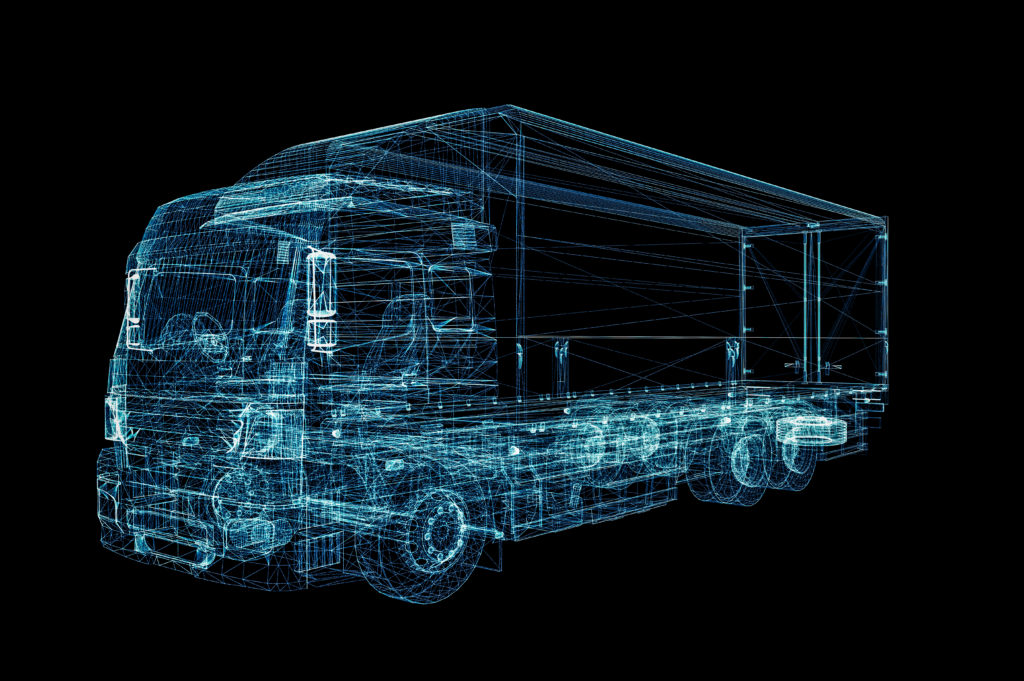
After last year’s GPS rollover on April 6th, the extent to which many carriers lean on technology became evident. The GPS update event, which takes place around every 20 years, brought to light the trucking industry’s possibility of experiencing widespread tech malfunctions–and the large problems those can easily cause for businesses.
The update connects to the system’s 10-digit format. Once it runs out of 10 binary digits, it must undergo a large-scale update.
“We don’t hear many questions from fleets that we work with on the concern of a network-wide outage,” said Deryk Powell, president of Velociti. “The GPS rollover event heightened the awareness of that for some fleets–it’s absolutely a concern.”
Smaller tech interruptions can be just as disruptive.
“Systems go down occasionally,” said founder of C.J. Driscoll & Associations, Clem Driscoll. “A particular telematics provider may have its servers go down. It doesn’t happen often..but it does happen from time to time. That can be an issue.”
Geotab commercial vehicle solutions vice president Scott Sutarik agrees. He said technology progression is vital in regards to safety improvement, even at the risk of systems going down. This is true, he explained, across all tech use–from electronic logging device compliance, safety camera systems, and radio frequency identification to fuel tax reporting, cargo sensors, and electronic door locks.
These updates will only continue across all technology, said Greentree Advisors LLC founder Ken Davis. As we see more manufacturers entering the industry with electric or hydrogen fuel cell-powered vehicles, he believes that 25 percent of the global vehicle market will be electric by 2030–a trend we will see among commercial vehicles as Class 5 to 6 vehicles lean toward electric operation as well.
“Trucking does depend on GPS a lot, but it is generally a very reliable system,” said Driscoll. “The U.S. military depends on it. It’s used for all kinds of commercial and government applications. There can be problems, but they are not very common.”
Supporters of electric commercial vehicles note that current trucks with internal combustion engines cost 30% more than those electrically powered. There are, however, worries around charging infrastructure development and grid capability, as electric vehicle demand is pushed forward by regulation and subsidies.
Although this tech brings innovative benefits to the industry, Powell also explained that disruptions to service can impact the bottom line of a carrier, thus negatively affecting its business overall.
“When you’re talking about drivers having to revert back to paper logs [in the event of a disruption], as an example, it’s a real issue for the industry,” he said “There is a mandate around the repair of ELDs. You have eight days to get a broken ELD repaired. That’s a real issue for fleets.” He also explained that many drivers–especially those new to the industry–could possibly have zero paper log experience.
It would, however, be much easier for truckers to revert temporarily to logging manually than it would be for smaller fleets using TMS systems to have to fall back on manual processes, noted McLeod Software marketing vice president Mark Cubine.
“Those examples are good wake-up calls for the vulnerability of technology,” he said. “Fortunately, in the case of driver’s logs, there is a paper paradigm that an individual driver could go back to.”
Currently, asset managers include mobility providers, said Davis. As services move toward digital reliance, mobility services take the place of financing, maintenance, storage, parking, and ownership. Availability is extremely vital with this mobility, he explained.
“I think the danger is more–in terms of losing functionality of ELDs and fleet management–it’s more [about] individual systems that could have hardware or software failures,” said Driscoll. “I think it’s more in the area of specific devices and specific solutions.”
The way to best combat these large-scale issues? Researching while investing in new carrier technology, said Sutarik.
“Companies that do not share a similar focus on engineering and continuous innovation, and instead accumulate legacy IT debt by focusing their efforts on keeping old and outdated systems working, are made more vulnerable to threats such as downtime,” he explained.
The potential for progress and success will always outweigh the risks, though. Industry professionals like Davis reiterate that staying up-to-date as new technologies grow in development is the best way to stay ahead of important opportunities as they arise throughout the industry.
Reader Interactions